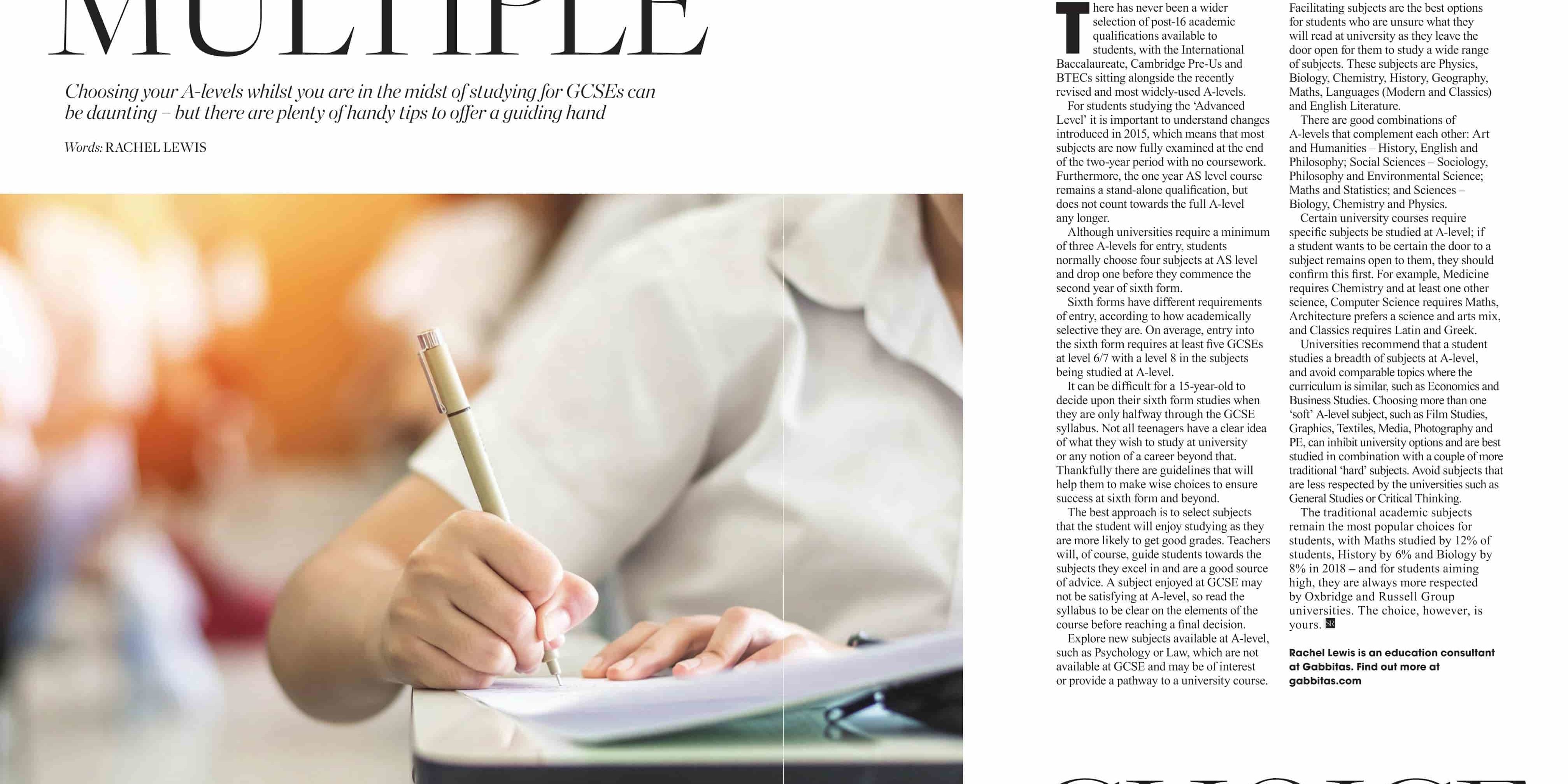Original Source: School Report Magazine, Summer Term 2019
There has never been a wider selection of post-16 academic qualifications available to students, with the International Baccalaureate, Cambridge Pre-Us and BTECs sitting alongside the recently revised and most widely-used A levels.
For students studying the ‘Advanced Level’ it is important to understand changes introduced in 2015, which means that most subjects are now fully examined at the end of the two-year period with no coursework. Furthermore, the one year AS level course remains a stand-alone qualification but does not count towards the full A level any longer.
A levels are harder than GCSEs; the student begins to specialise and narrow down their subjects. Although universities require a minimum of three A levels for entry, students normally choose four subjects at AS level and drop one before they commence the second year of sixth form.
Sixth forms have different requirements of entry, according to how academically selective they are. On average entry into the sixth form requires at least five GCSEs at level 6/7 with a level 8 in the subjects being studied at A level.
It can be difficult for a 15-year-old to decide upon their sixth form studies when they are only halfway through the GCSE syllabus. Not all teenagers have a clear idea of what they wish to study at university or any notion of a career beyond that. Thankfully there are guidelines that will help them to make wise choices to ensure success at sixth form and beyond.
- The best approach is to select subjects that the student will enjoy studying as they are more likely to get good grades.
- Teachers will guide students towards the subjects they excel in and are a good source of advice.
- A subject enjoyed at GCSE may not be satisfying at A level so read the syllabus to be clear on the elements of the course before reaching a final decision.
- Explore new subjects available at A level, such as Psychology or Law, that are not available at GCSE and may be of interest or provide a pathway to a university course.
- Facilitating subjects are the best options for students who are unsure what they will read at university as they leave the door open for them to study a wide range of subjects. These subjects are Physics, Biology, Chemistry, History, Geography, Maths, Languages (Modern and Classics) and English Literature.
- There are good combinations of A levels that compliment each other: Art and Humanities – History, English, Philosophy, Social Sciences – Sociology, Philosophy, Environmental Science; Maths and Statistics; Sciences – Biology, Chemistry and Physics.
- Certain university courses require specific subjects be studied at A level; If a student wants to be certain the door to a subject remains open to them, they should confirm this first. For example, Medicine requires Chemistry and at least one other science, Computer Science requires Maths, Architecture prefers a science and arts mix, Classics requires Latin and Greek.
- Universities recommend that a student studies a breadth of subjects at A level, and avoid comparable topics where the curriculum is similar, such as Economics and Business Studies.
- Choosing more than one ‘soft’ A level subject, such as Film Studies, Graphics, Textiles, Media, Photography and PE, can inhibit university options and are best studied in combination with a couple of more traditional ‘hard’ subjects.
- Avoid subjects that are less respected by the universities such as general studies or critical thinking.
The traditional academic subjects remain the most popular choices for students, with Maths studied by 12% of students, History by 6% and Biology by 8% in 2018 and for students aiming high, they are always more respected by Oxbridge and Russell Group universities.


